Chinese electric car manufacturer BYD once again achieved record sales of vehicles with alternative drive systems in June. However, while fewer all-electric vehicles were sold than in May, BYD’s plug-in hybrids achieved a new record.
Meanwhile, the world’s biggest producer of electrified vehicles keeps expanding its production network. It opened plants in Thailand and Uzbekistan, it is looking for a second car plant somewhere in Europe (the first one is in Hungary), and everyone expects Turkey to announce a deal for a new BYD plant in the country on Monday.
New record
In June, BYD sold 341,658 new energy vehicles or NEVs ( battery electric vehicles, fuel cell vehicles, and plug-in hybrids). This means the manufacturer narrowly beat the previous record from December 2023 (341,043 vehicles). BYD sales have now recovered from the slump around the turn of the year (just after the previous December record).
Compared to the previous month, 331,817 BYDs were sold in May 2024, a slight increase of three percent. Over the year, growth is significantly higher: based on the 253,046 vehicles sold in June 2023, BYD has increased by 35%.
These are only battery electric vehicles (BEV) and plug-in hybrids. BYD does not have fuel cell cars in its range, and the last pure combustion vehicles were built in 2022.
The vast majority of BYD sales in June were passenger cars: 340,211 of the 341,658 BYD vehicles sold were cars, and 1,447 were commercial vehicles. The growth in passenger cars was (unsurprisingly) very close to the overall growth, while commercial vehicles grew by 6.3% for the year and 8.9% compared to May.
PHEVs more popular
However, there has been a slight shift in drive types: For a long time, sales of plug-in hybrids and battery electric cars roughly balanced each other out at BYD. In June, however, BEV sales were almost constant (-0.8%), while PHEV sales increased by 5.9%.
It was the fourth record month for plug-in hybrids, with 195,032 vehicles sold. BYD sold 145,179 units with battery-electric drive systems.
Incidentally, the majority of BYD vehicles continued to be sold in China. In June, 26,995 vehicles went to overseas markets, including Europe. This represents a 156% increase in exports for the year as a whole, although exports fell by 28% compared to May.
In Q2, BYD sold 986,720 New Energy Vehicles and thus only just missed the million mark. Compared to the same quarter of the previous year, this represents growth of just over 40%.
New plants in Thailand and Uzbekistan
BYD is now also building its vehicles in two other countries. Two plug-in hybrids are coming off the production line in Jizzakh, Uzbekistan, while electric cars for South East Asia are being built at the factory in Thailand.
BYD has built its Thai factory in Nikhom Phatthana District (Rayong Province). The new plant covers an area of more than 948,000 square meters and has an annual production capacity of 150,000 units. The company built the new plant to manufacture right-hand drive (RHD) models for domestic sales and exports to other ASEAN markets. The Chinese automaker already sells cars in other RHD member states of the union – Brunei, Indonesia, Malaysia, and Singapore.
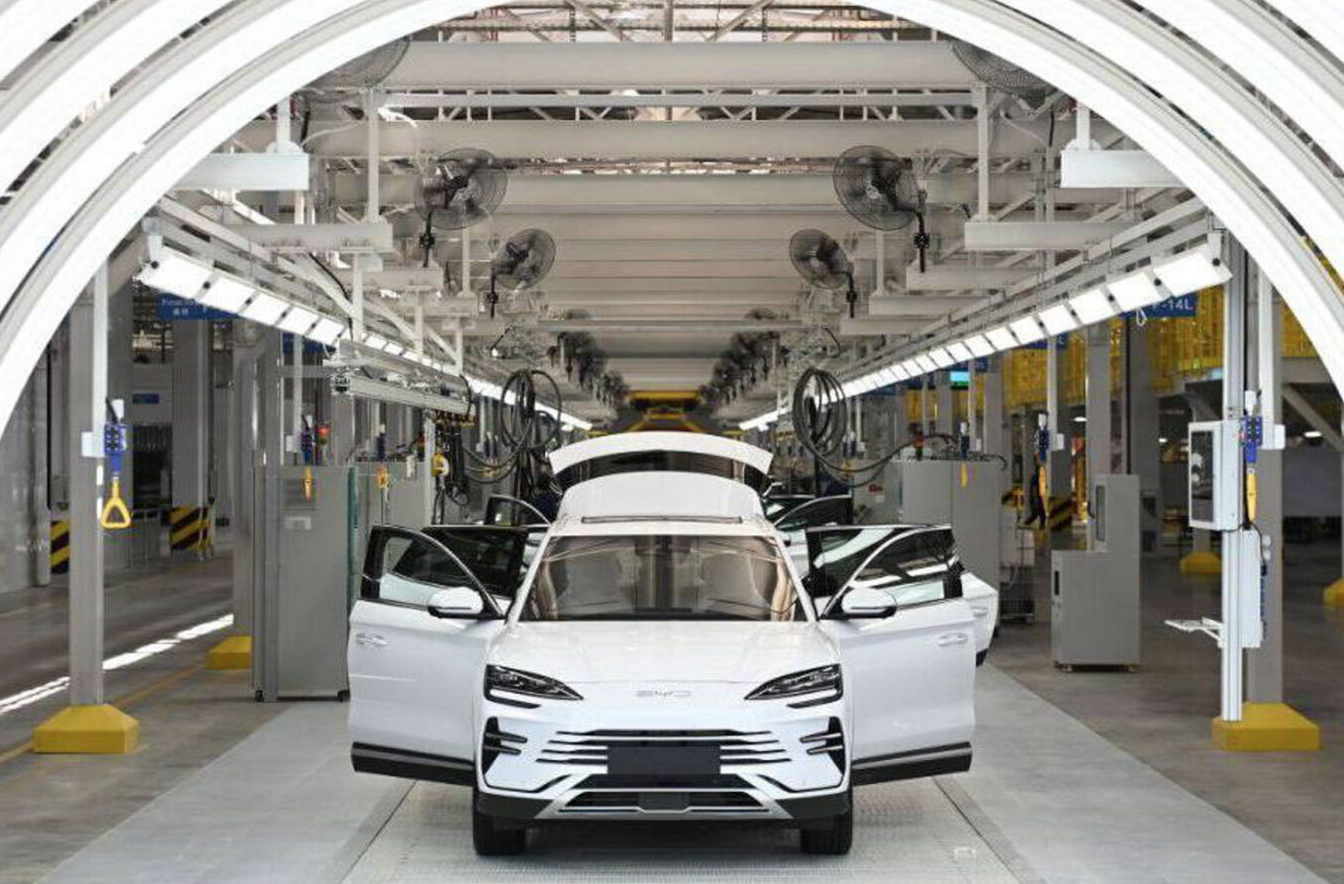
The first car BYD made at its new auto plant was the Dolphin electric hatchback. Along with the rollout of the first unit in Thailand, it achieved a new production milestone of 8 million new energy vehicles. The company also makes the Atto 3 electric SUV and Seal electric sedan there. In the future, the Chinese automaker will also produce the Sealion 6 (Seal U) plug-in hybrid SUV at the Thai factory.
For the new production in Uzbekistan, BYD has entered into a cooperation agreement with the Uzbek government to promote sustainable mobility. It is building the Song Plus DM-i and Chazor DM-i plug-in hybrids in Jizzakh. Production in Uzbekistan is carried out via a joint venture with UzAuto, the country’s only car manufacturer to date.
Meanwhile, Bloomberg has announced that BYD wants to spend $1 billion on a new plant in Turkey. Normally, Turkish President Erdogan will announce this today during his visit to the Manisa province (western Turkey), where the factory would be built.
With this factory, BYD would also be exempted from the special ‘Chinese’ import tariffs the EU has just(provisionally) installed. Turkey has a special trade deal with the EU. Soon, electric BYDs will also roll out of a Hungarian factory, and BYD is eagerly seeking another location to assemble cars in the EU.
Into the leasing world
Meanwhile, BYD is strengthening its presence in the leasing sector. Ayvens (formerly ALD Automotive and LeasPlan) and BYD have signed a Memorandum of Understanding (MoU) with BYD to maximize the delivery of BYD’s electric cars and LCVs to Ayvens’ corporate and retail customers in Europe.
The MoU was signed by Tim Albertsen, Group CEO of Ayvens, and BYD’s number two Stella Li, Executive VP of BYD, at BYD’s global HQ in Shenzen, China.
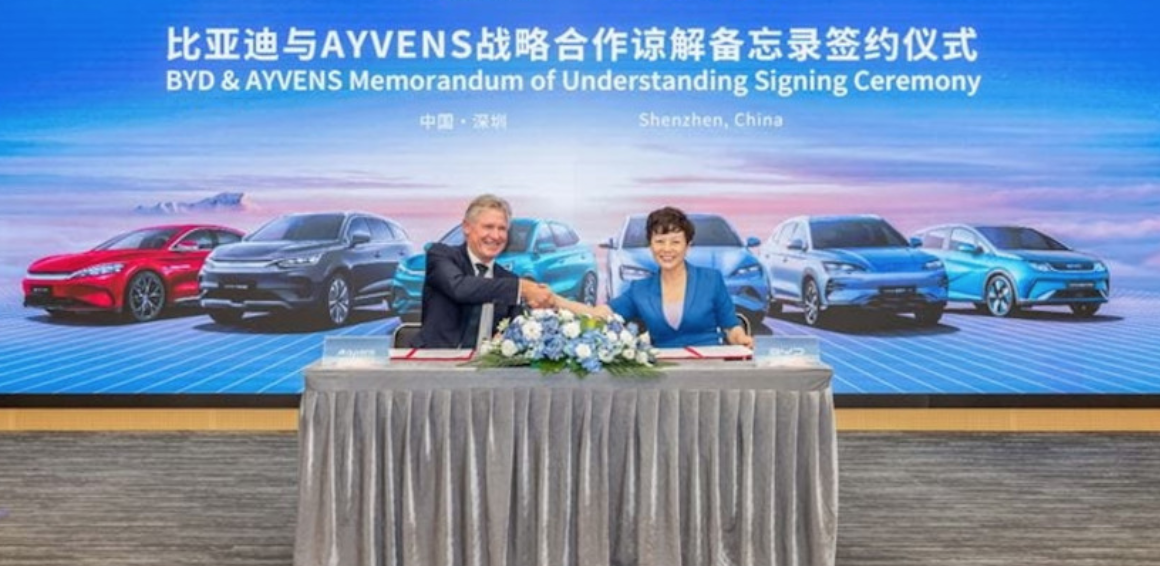
“Our cooperation with Ayvens reflects our mutual vision to accelerate the development of New Energy Vehicle markets in Europe. Together we offer diverse, accessible, and appealing products with pioneering innovation to incentivize the advancement of eco-friendly lease fleets,” commented Wang Chuanfu, Chairman and President of BYD Company, who was present at the signing.
“BYD is clearly at the forefront in new energy vehicle development, and we are pleased to be joining forces with them to expand the availability of electric vehicles in Europe, as well as working together to further innovate around electric vehicles and battery technology,” added Ayvens’ Tim Albertsen.
In February, BYD already signed a similar MoU with the leasing company Arval.
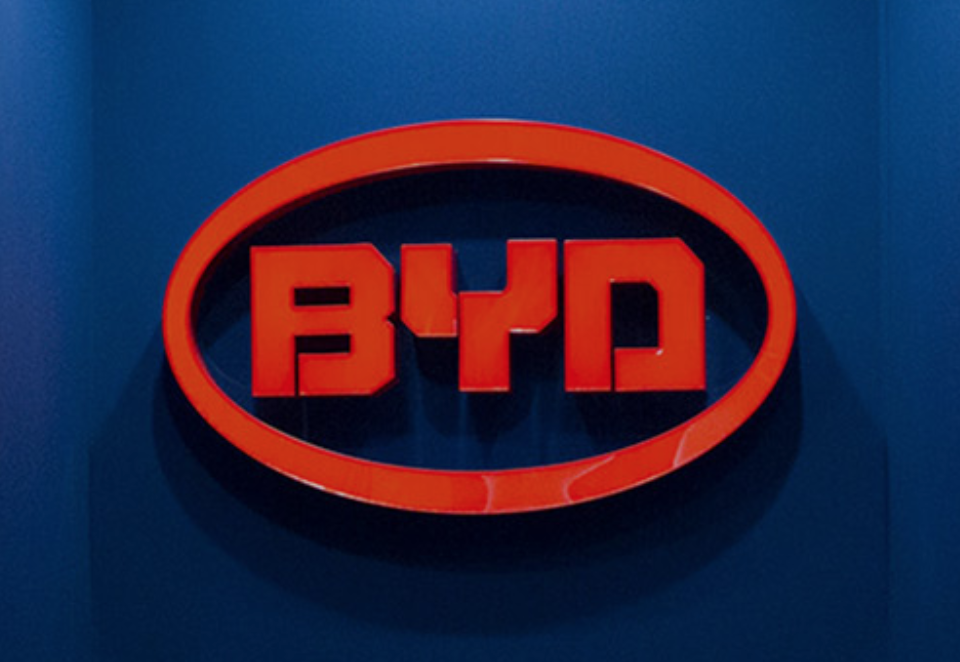
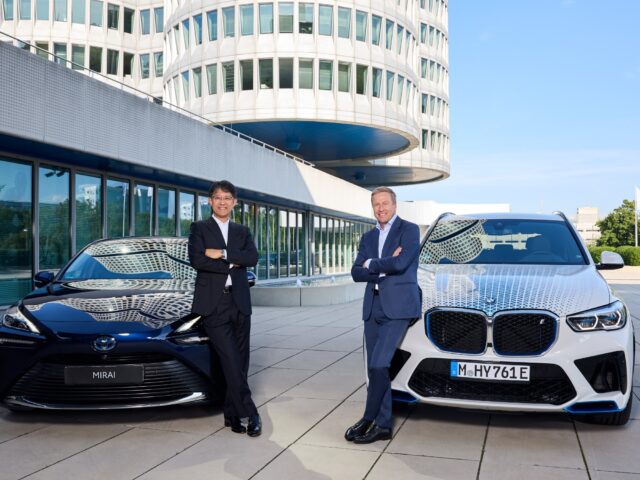

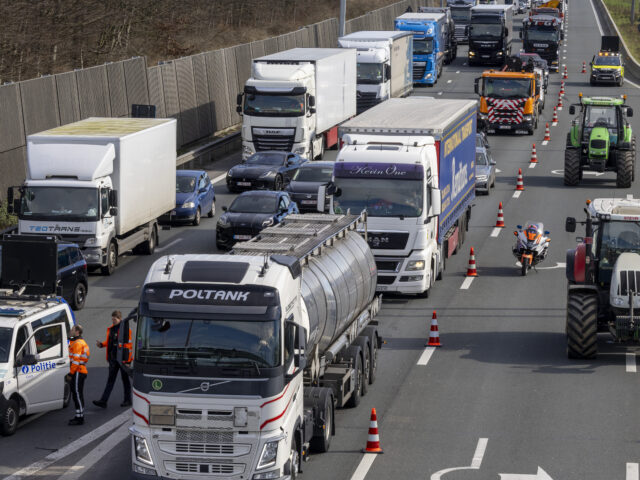
Comments
Ready to join the conversation?
You must be an active subscriber to leave a comment.
Subscribe Today